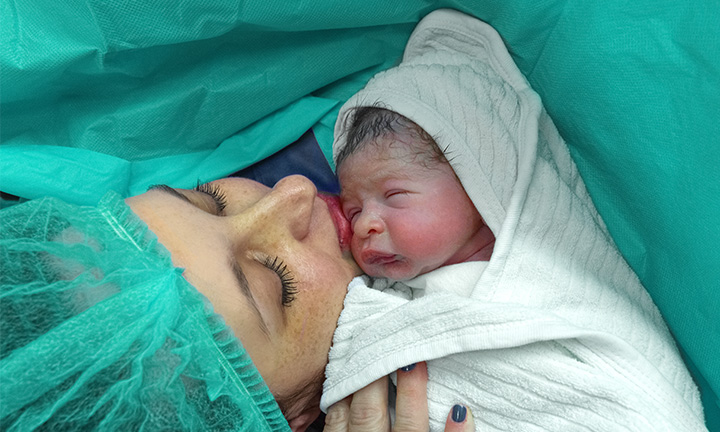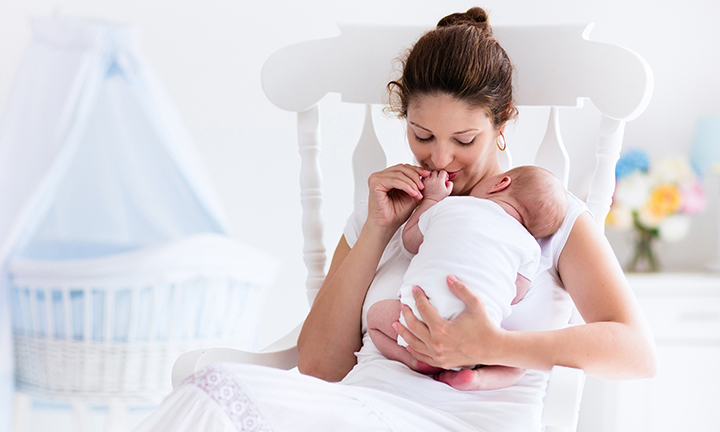
Postnatal Depression: Symptoms, Treatment and Support
Bringing your little one into the world is a life-changing experience but it can normal to feel overwhelmed, sad or distant during this time. These feelings might be signs of postnatal depression, a common and very real experience that affects many new parents.
If this resonates with you, know that support is available and you don’t have to face this alone. Taking steps to seek help could ease these emotions and help you enjoy the special moments with your little one as you deserve.
In this article, we’ll explore postnatal depression symptoms, how they differ from the ‘baby blues’ and the treatments that may be recommended. We’ll also discuss postnatal depression in men, how long it may last and offer advice for supporting someone who may be experiencing it.
What is Postnatal Depression?
Postnatal depression (PND) is a medical condition that causes intense and long-lasting negative emotions or thoughts in the months following childbirth. These feelings may become so overwhelming that they interfere with daily life, making it difficult to care for yourself or your little one.
PND often begins between one and three weeks after giving birth, though for some parents, symptoms may appear later. These may develop at any time in the first year postpartum and can occur after any delivery, not just the first childbirth.
Feeling overwhelmed in the first few weeks is completely normal. A lack of sleep, adjusting to life with a new baby and increased responsibilities often lead to tearfulness or anxiety, commonly referred to as the ‘baby blues’. These feelings typically resolve within a week or two. However, if sadness, emptiness or hopelessness persist beyond two weeks and begin to impact your daily life, they could be signs of postnatal depression.
It’s important to remember that postnatal depression is not a sign of weakness or a personal failing. Instead, it’s a complication of childbirth. Left untreated, PND may interfere with bonding and potentially impact your baby’s development. Seeking help early can make a significant difference. With support and care, you may begin to feel better and enjoy precious moments with your little one.
Postnatal Depression Vs. Baby Blues
Postnatal depression is different from the postnatal blues, often referred to as the ‘baby blues’. The term ‘baby blues’ describes the short-term feelings of sadness, anxiety or low mood that many parents experience in the first few days after giving birth. With the baby blues, you might feel tearful, overwhelmed or struggle to sleep, but these feelings usually pass within two weeks without needing treatment.
The key difference between the baby blues and postnatal depression symptoms is their duration and intensity. While the baby blues typically resolve on their own, PND involves more severe and persistent feelings that may last for months, making daily life, such as caring for yourself or your baby, feel overwhelming. If these feelings linger beyond two weeks postpartum, it could be a sign of postnatal depression and seeking help from your GP, midwife or health visitor is important.
It’s worth noting that up to 8 in 10 people experience the baby blues, making it a common response to the physical and emotional changes that come with having a baby. Resting as much as possible during this time and seeking support from family and friends may help ease the adjustment.
Here are a few simple ways to care for yourself during the baby blues:
These small steps may provide comfort as your body and mind recover from childbirth. However, if your feelings don’t improve or they get worse, reaching out for professional support is essential.
What is Postnatal Psychosis?
Postnatal depression is distinct from postnatal psychosis, a rare and severe condition that affects about 4 in every 1,000 births. Symptoms such as hallucinations, delusions, confusion and extreme agitation make this a medical emergency requiring urgent care.
Unlike postnatal depression, which may persist but is manageable with the right support, postnatal psychosis is more intense and may pose risks to both the parent and baby if left untreated. If you or someone you know is experiencing postnatal psychosis, seek urgent medical help. Immediate treatment can make a difference—reach out to your GP or emergency services now.
What Causes Postnatal Depression?
The exact cause of postnatal depression is not completely clear, but it is believed to result from a combination of physical, emotional and social factors. Having a baby is a life-changing event that may bring significant stress and exhaustion, which may sometimes lead to symptoms of postnatal depression.
Some contributing factors might include:
Related Articles
Risk Factors
Certain factors may increase the likelihood of developing postnatal depression, including:
It’s important to remember that not everyone with these risk factors will develop PND and many parents without these experiences may also feel overwhelmed after childbirth. If you think you might be experiencing symptoms, speaking with your GP, midwife or health visitor may be an important first step towards feeling better.
Postnatal Depression Symptoms
Recognising the signs and symptoms of postnatal depression may help you know when to seek support.
While every parent’s experience may differ, some common postnatal depression symptoms include:
In addition to these symptoms, postnatal anxiety may cause intense worry or fear, even in situations that may not be harmful. Panic attacks may sometimes accompany these feelings, making them even more distressing. Only a doctor, midwife or GP can diagnose postnatal depression, so it’s important to reach out if you’re experiencing these symptoms.
Contact them immediately if:
Seeking support early may make a significant difference in your recovery and help you enjoy precious moments with your little one.
Treatment for Postnatal Depression
If you think you might have postnatal depression, it’s important to seek help from your GP, midwife or another healthcare professional. They can evaluate your feelings and symptoms to confirm a diagnosis and create a treatment plan tailored to your needs.
Postnatal depression treatment may involve one or both of the following:
While professional treatment is essential, there are additional steps you can take to support recovery:
With the right combination of care and support, postnatal depression symptoms may improve. This will allow you to focus on bonding with your baby and finding joy in parenthood.
How to Prevent Postnatal Depression?
Taking steps during pregnancy may help reduce the risk of postnatal depression, but it’s important to know that it cannot always be fully prevented.
Preventive care includes:
Your healthcare team may recommend therapy or medication during pregnancy to manage your mental health and arrange regular postnatal check-ups after your baby’s birth. Being proactive and open about your mental health during pregnancy may help prevent postnatal depression and ensure you feel supported throughout this journey.
How Long Does Postnatal Depression Last?
Postnatal depression may last for months or longer if untreated, with symptoms sometimes worsening over time. Seeking help early may shorten its duration and reduce its impact on you, your baby and your loved ones.
Can Men Experience Postnatal Depression?
Approximately 25% of dads experience mild male postnatal depression symptoms, and around 10 to 12% receive a diagnosis of depression in the first year after their baby is born.
Same-sex and non-biological parents may also face similar challenges as they adjust to parenthood. Factors such as new responsibilities, bonding difficulties or the pressures of providing for a growing family may contribute to postnatal depression in men or same-sex parents.
Symptoms may include:
Your emotional well-being as a parent is crucial, not only for your happiness but also for your baby’s development and your family’s health. If you think you might be experiencing male postnatal depression or postnatal depression as a same-sex parent, consider connecting with support groups, speaking openly with loved ones and seeking professional help.
How to Help Someone with Postnatal Depression
Supporting someone with postnatal depression can make a significant difference. Often, those experiencing postnatal depression symptoms may not recognise these symptoms or may feel hesitant to seek help.
If you suspect someone you care about is struggling, here are ways to support them:
While you can’t ‘fix’ postnatal depression, your support may help the person affected feel understood and less alone during this time. Open conversations and small acts of care may go a long way in their recovery journey.
The Bottom Line
Postnatal depression is a challenging experience but with the right treatment and support, recovery is possible. Whether you’re experiencing postnatal depression symptoms or supporting someone else who is, remember that help is available. Early care may make a significant difference, helping with baby bonding and enjoying this new chapter.
To make parenting a little easier, download the Pampers Club app for exclusive discounts and digital offers on baby essentials. It’s a simple way to save and manage expenses.
- NCT. 'Postnatal Depression: Dads and Co-Parents – 10 Things You Should Know'
- NCT. 'Spotting Signs of Postnatal Depression in Your Partner'
- NHS. 'Feeling Depressed After Childbirth'
- NHS. 'Postnatal Depression Overview'
- NHS. 'Postnatal Depression Symptoms'
- NHS. 'Postnatal Depression Treatment'
- NHS. 'Post-Partum Psychosis'
Read more about Newborn Baby
Join Pampers Club and get:






